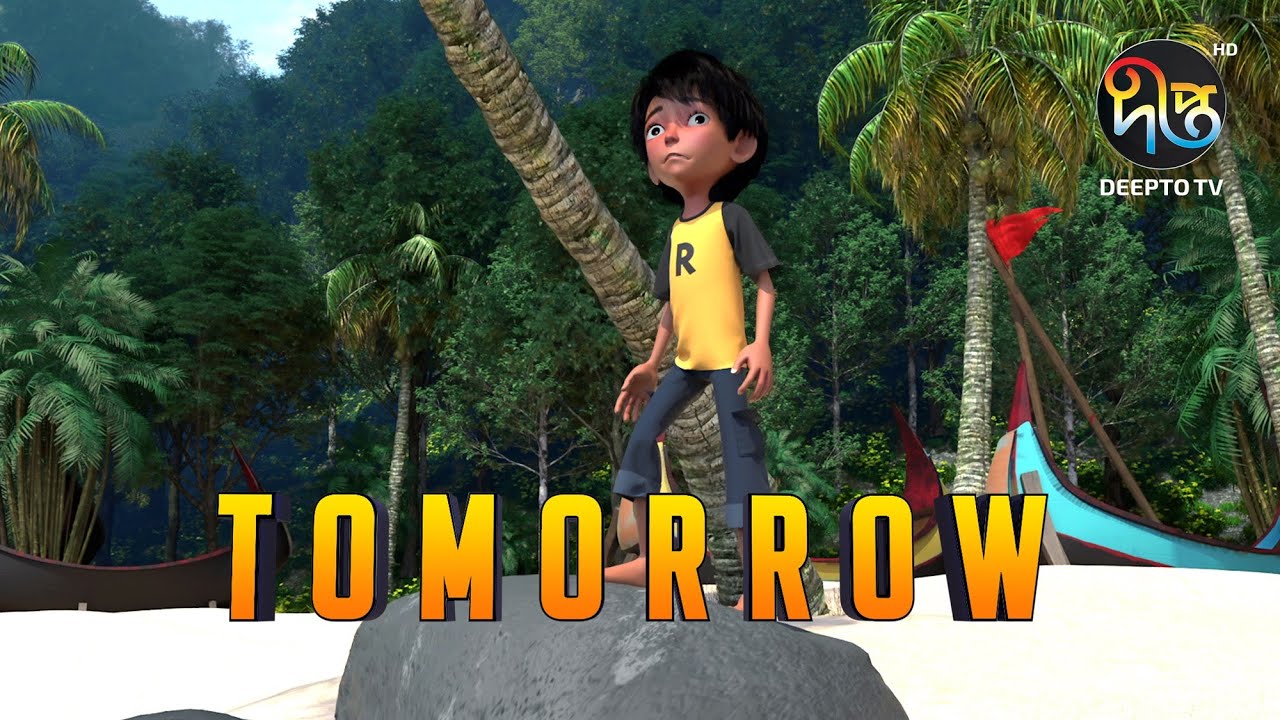Tomorrow, an animated film about climate change (Indonesian version)
Summary
TLDRThe script portrays the urgent dialogue between a father and daughter, Ratul, on the devastating effects of climate change. Highlighting the impact of rising sea levels, environmental pollution, and the melting of polar ice caps, it emphasizes the need for immediate action. The narrative unfolds through the voice of 'Grandfather Wind,' revealing humanity's role in environmental degradation and the potential for a sustainable future. It concludes with a call to action, urging individuals and governments to embrace renewable energy and reduce carbon emissions, showcasing a hopeful vision where collective efforts restore the Earth's beauty.
Takeaways
- 🌍 The script addresses the global issue of climate change and its devastating effects on the environment and human life.
- 🌊 Rising sea levels due to melting ice caps are causing coastal areas to flood, threatening the livelihoods of people living near the sea.
- 🏭 Industrial pollution from the burning of fossil fuels is causing air pollution and contributing to the greenhouse effect, warming the planet.
- 🌡️ The increase in global temperatures is leading to the melting of glaciers, which in turn affects water supply and causes rivers to dry up, impacting countries like Bangladesh.
- 🌳 Deforestation and the burning of fossil fuels are disrupting the atmospheric balance and accelerating climate change.
- 🌿 The script emphasizes the importance of renewable energy sources like wind turbines and solar panels as alternatives to fossil fuels.
- 💪 It suggests that collective human action is necessary to combat climate change and that every individual can make a difference.
- 🌅 The story illustrates two possible futures for Bangladesh: one where the country is heavily affected by climate change, and another where proactive measures have been taken to mitigate its effects.
- 📢 Public protests and awareness campaigns play a crucial role in influencing government policies towards addressing climate change.
- 🏛️ The script implies that government action, such as implementing a tax on fossil fuels and investing in renewable energy, is essential for environmental sustainability.
- 🔄 The narrative concludes with a hopeful message that by working together, humanity can reverse the damage done to the planet and create a better future.
Q & A
What is the main environmental concern discussed in the script?
-The main environmental concern discussed in the script is the impact of climate change, particularly the rising sea levels and its effects on coastal communities.
What is the role of 'Kakek Angin' in the script?
-Kakek Angin, or Grandfather Wind, represents a guardian of nature who has the responsibility to control the wind and storms, but feels that human actions have disrupted the balance of the atmosphere.
What are the consequences of burning fossil fuels mentioned in the script?
-Burning fossil fuels leads to air pollution, contributes to the greenhouse effect, and results in global warming, which in turn causes the melting of polar ice caps and rising sea levels.
How does the script describe the impact of climate change on Bangladesh?
-The script describes that Bangladesh is at risk of being submerged due to rising sea levels, with millions of people potentially becoming climate refugees and facing a lack of fresh water and agricultural challenges.
What is the script's depiction of the future if no action is taken against climate change?
-The script depicts a bleak future with coastal cities and villages submerged, people losing their homes and livelihoods, and an increased dependency on government aid.
What actions are suggested in the script to combat climate change?
-The script suggests raising awareness, implementing a tax on fossil fuels, investing in renewable energy sources like solar panels and wind turbines, and reducing all forms of pollution.
What is the significance of the protests mentioned in the script?
-The protests signify the public's demand for government action against climate change, including the imposition of a tax on fossil fuels and the adoption of renewable energy.
How does the script portray the potential for a positive future?
-The script portrays a positive future where Bangladesh and the world have transitioned to renewable energy, reducing the effects of climate change and making the planet habitable again.
What is the message conveyed by the script regarding collective responsibility for the environment?
-The script conveys the message that every individual has a role to play in combating climate change and that collective action can lead to a better future for the planet.
What is the role of the younger generation in the script's narrative?
-The younger generation in the script is portrayed as active participants in the fight against climate change, leading protests and advocating for environmental policies.
How does the script address the issue of global cooperation in tackling climate change?
-The script addresses the issue by showing that a global resolution has been adopted to tax fossil fuels, indicating the need for international collaboration to effectively combat climate change.
Outlines

This section is available to paid users only. Please upgrade to access this part.
Upgrade NowMindmap

This section is available to paid users only. Please upgrade to access this part.
Upgrade NowKeywords

This section is available to paid users only. Please upgrade to access this part.
Upgrade NowHighlights

This section is available to paid users only. Please upgrade to access this part.
Upgrade NowTranscripts

This section is available to paid users only. Please upgrade to access this part.
Upgrade NowBrowse More Related Video

Tomorrow, an animated film about climate change (English version)

Our Climate Future | Short film

Lost Futures: How greed is destroying our planet | Dying Earth: E1 | Featured Documentary

This Country Has 79 Years Left to Live

In Tearful, Amazing Speech, Philippines Climate Delegate Announces Hunger Strike

How deadly heatwaves are blown up by climate change
5.0 / 5 (0 votes)